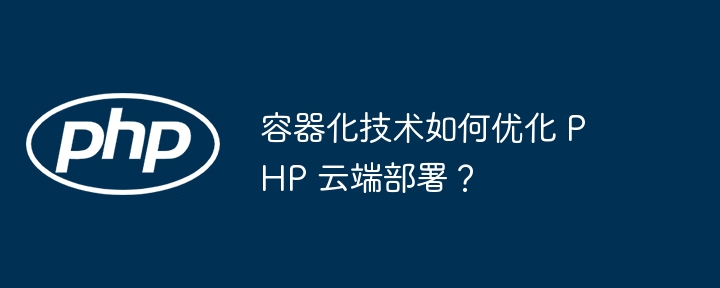
Containerization technology provides advantages for PHP cloud deployment, including consistency, portability, simplified deployment, and scalability. Using tools like Docker, you can package your PHP application into a container by building a Docker image, building the container, executing the container, and testing the application to ensure it performs properly.

Containerization technology optimizes PHP cloud deployment
Containerization is a software packaging and deployment technology that integrates applications Together with the libraries, tools and settings required to run them, all packaged into an isolated execution environment. This approach can bring significant advantages to PHP deployment, including:
Practical case: Deploying PHP applications using Docker
To containerize PHP applications, you can use Docker. Docker is a popular open source containerization platform that allows you to define and manage containers. Here is a step-by-step guide to deploying a PHP application using Docker:
docker buildcommand to create a container image. This command will create a new image according to the instructions of the Dockerfile.docker runcommand to execute the container. This command will start the container and execute the application.The following is a sample Dockerfile for deploying a simple PHP application:
FROM php:7.4-apache # 拷貝應用程式代碼 COPY . /var/www/html # 執行應用程式 CMD ["apache2-foreground"]
Conclusion
Using containerization technology can significantly optimize PHP cloud deployment. Containers simplify management and improve application performance by providing consistency, portability, simplified deployment, and scalability. Using tools like Docker, you can easily package your PHP applications into containers and deploy them quickly and efficiently in cloud environments.
The above is the detailed content of How does containerization technology optimize PHP cloud deployment?. For more information, please follow other related articles on the PHP Chinese website!